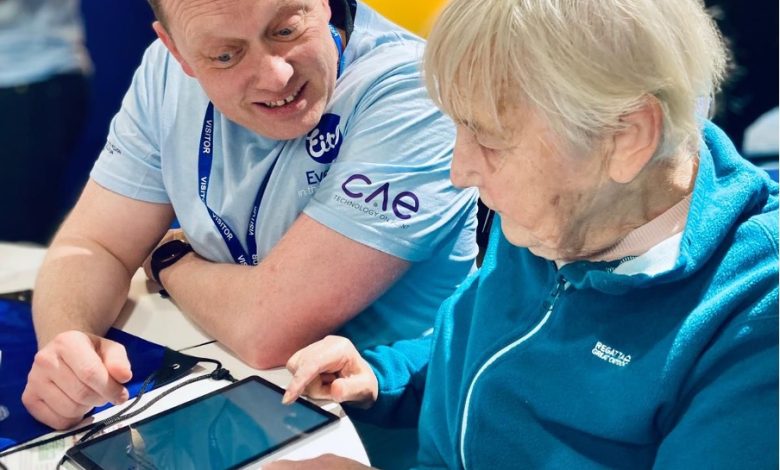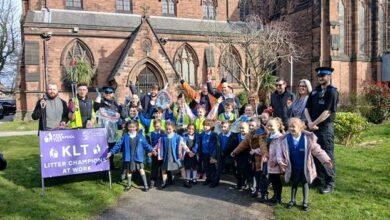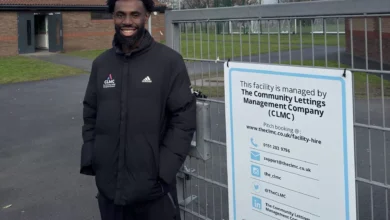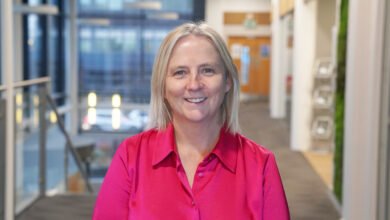More than 1400 people helped online in the Liverpool City Region as digital inclusion scheme ramps up for final phase

A pioneering scheme to get more people in the Liverpool City Region online is gearing up for a final phase which, by the end of the year, will have helped more than 4,500 people.
More than 1400 people have already benefitted thanks to the launch of the Digital Inclusion Initiative, a partnership that provides participants with a free Android™ tablet, along with in-person training in online skills, and six months of free mobile connectivity.
The Liverpool City Region Combined Authority is partnering with Lloyds Banking Group, Vodafone and Assurant to bridge the digital divide by driving digital skills, enhancing lives, and stimulating economic growth across the UK.
Roll-out in the Liverpool City Region started with a pilot delivering tablets and training to 300 local people who were unemployed or economically inactive.
Since that pilot phase, the initiative has grown dramatically. Assurant, (NYSE:AIZ), a leading global business services company, is providing financial backing, local social enterprise, FRC Group is providing logistical resources and expertise via its digital inclusion project, ReUse IT, while 65 local partner organisations are enabling the accelerated roll-out of the programme across the Liverpool City Region Digital Inclusion Network.
Lloyds Bank’s Academy is leading the digital skills training with sessions covering topics like online safety, the online job market and support with downloading useful applications. In addition, the Lloyds Bank Academy offers “Train the Trainer” sessions to upskill local organisations to help even more people get online.
Access to internet data is provided by Vodafone as part of the programme, with users benefiting from a ‘Mi-Fi’ dongle that can provide a free portable hotspot for an entire home with 40 gigabytes of free monthly data, calls and texts for six months.
Residents who are digitally excluded and lack the access to devices, connectivity or skills to get online can now be referred onto the programme by one of the 65 local partners listed here.
Cllr Liam Robinson, Liverpool City Region Combined Authority Cabinet Member for Innovation, said:
“We know how important technology and connectivity are in all of our lives and that’s why we’re aiming to make the Liverpool City Region the most digitally connected in the country.
“However, there are still too many people who are digitally excluded and unable to navigate their way through today’s digital world, missing out on access to essential services, job opportunities and keeping in touch with family and friends.
“That’s why we’re supporting schemes like this to help prevent anyone in our region being left behind. We want a better-connected future for everyone and this initiative is playing a vital part in that mission.”
Jemma Waters, Head of Group Customer Inclusion at Lloyds Banking Group said
“For many of us, being online isn’t something we think about much – it’s woven into our day to day lives, through shopping, paying bills, staying in touch with family or friends and so much more. This is why it’s so important to us to support those in our communities who aren’t online regularly, or perhaps at all, so people can build confidence and access the resources most needed. The Lloyds Bank Academy wants everyone to have the opportunity to use the growth in digital technologies in a way that works for them and our partnership with the Liverpool City Region has helped thousands of people get, and stay, online.”
Nicki Lyons, Chief Corporate Affairs & Sustainability Officer, Vodafone UK, said:
“We believe that everyone should have access to the benefits connectivity brings, which is why tackling digital exclusion sits at the heart of our business.
As our society becomes increasingly digital, the gap between those without access to connectivity and those with it grows ever bigger. It’s why initiatives like this are so important and we are very proud of our partnership with Liverpool City Region Combined Authority helping to bring connectivity to more people across the region.”
Lee Sturgeon, UK Managing Director from Assurant said:
“Assurant is proud to be part of the Digital Inclusion Initiative and supporting communities like the Liverpool City Region to remove all forms of digital exclusion. We’re delighted to have donated the tablets and MiFi devices to this cause, which can then make a real difference to people’s lives, giving them one of the tools to help achieve their ambitions. We look forward to working closely alongside Lloyds Banking Group and Vodafone to ensure as many people as possible can thrive in a connected world.”
Shaun Doran, CEO at FRC Group said:
“At FRC Group, our mission to end furniture poverty aligns closely with the ethos of Liverpool Combined Authority’s Digital Inclusion Initiative, helping to break down barriers to self-sufficiency and supporting people to thrive. Through our ReUse IT project, which has been providing refurbished computers to local community groups and charities since 2019, we’ve seen how much access to technology can change lives. Being part of this new initiative lets us help even more people across the region, and we’re excited to play our part in making a difference.”
Digital inclusion means all individuals and communities have access to, and can effectively use, digital technologies. It also bridges the digital divide, which is the gap between those who have access to and know how to use digital technologies, and those who don’t.
The Liverpool City Region Digital Inclusion Network, led by the Combined Authority, is committed to providing equal opportunities and resources for individuals to access and engage in modern digital life. Working across 180 organisations, the network brings together providers supporting residents online and tackling the digital divide.
Those experiencing ‘digital exclusion’ are often closely aligned to factors such as deprivation, labour market status or protected characteristics. These are further compounded by issues such as increases to cost-of-living and wider economic contraction.
The levels of multiple deprivation in the City Region play a part in higher levels of poverty experienced by residents than elsewhere in the UK. More than a third of our neighbourhoods are in the top 10% most deprived nationally[1], significantly higher than all other Combined Authorities. This impacts access to services, education, health, housing and income. With this deprivation, digital deprivation is a common crossover factor.
Digital inclusion is crucial for reducing inequalities, promoting economic growth, and empowering individuals and communities. It enables people to access educational resources, job opportunities, healthcare services, government services, and other benefits that are increasingly available online. Increasing digital inclusion can help create equitable and connected communities.
The University of Liverpool’s Heseltine Institute estimate there are over 325,000 digitally excluded working-age individuals in the city region who are limited or non-users of the internet, with additional research by the Good Things Foundation, University of Liverpool and Loughborough University estimating more than 50% of households with children in LCR do not meet the newly established Minimum Digital Living Standard. [2]
Find out more about digital inclusion in LCR at: www.helpingyouonline.co.uk






